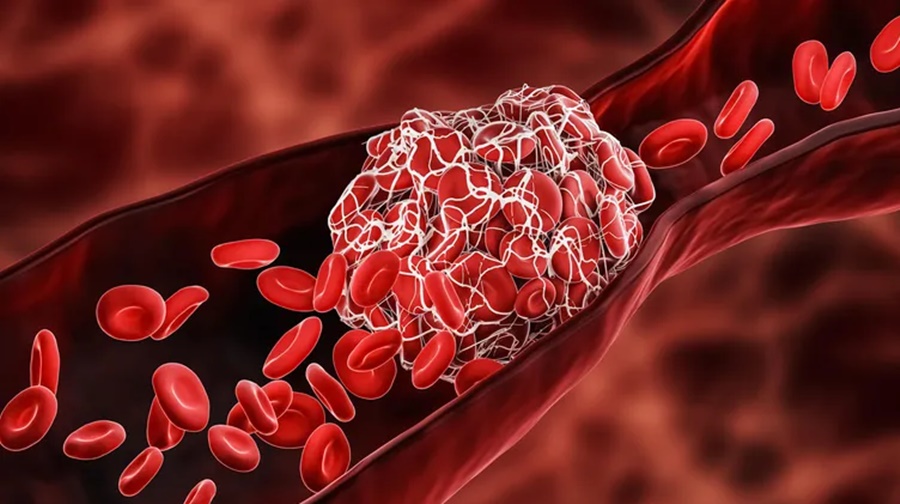Causes of polycythemia: This is how thick blood develops

If the blood is too thick, there are too many red blood cells in the blood. It therefore flows more slowly through the body than it generally should. Find out here what the exact reasons for this can be.
Blood that is too thick – also known as polycythemia by medical professionals – shows up in a blood sample with an increased number of red blood cells (erythrocytes). These have a negative effect on the flow behavior of the blood, the heart has to do more work to pump it through the body.
As a result, there is a risk of blood clots forming and heart attacks or strokes being triggered.
Thick blood: These causes can be behind it
In most cases, polycythemia is caused by a lack of oxygen – both from the outside and from the inside. An external lack of oxygen can occur, for example, during a longer stay at high altitudes, such as in mountains, where the air contains less oxygen than at sea level.
The blood then thickens to absorb more oxygen from the air. Heavy smoking also thickens the blood because the cigarette smoke reduces the amount of oxygen reaching the body.
However, blood that is too thick often indicates an internal lack of oxygen. This is caused, for example, by a heart or lung disease. The diseases ensure that less oxygen is pumped through the body. The body responds by increasing the production of red blood cells, which causes the blood to thicken.
Another reason why thick blood occurs is dehydration. This is triggered, for example, by massive vomiting and persistent diarrhea. The general fluid loss of the body also reduces the liquid blood components.
So, the causes of polycythemia include:
Heart diseases such as heart valve defects or heart failure
Lung diseases such as COPD or bronchial asthma
cancers
prolonged stay at high altitude
genetic predisposition
Bone marrow disease
dehydration
heavy smoking
Gastrointestinal infections and food intolerance


